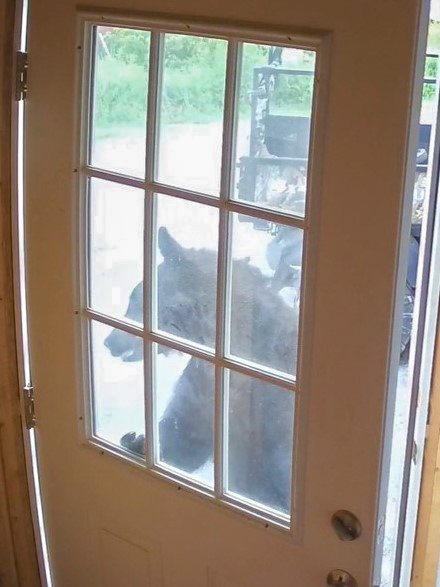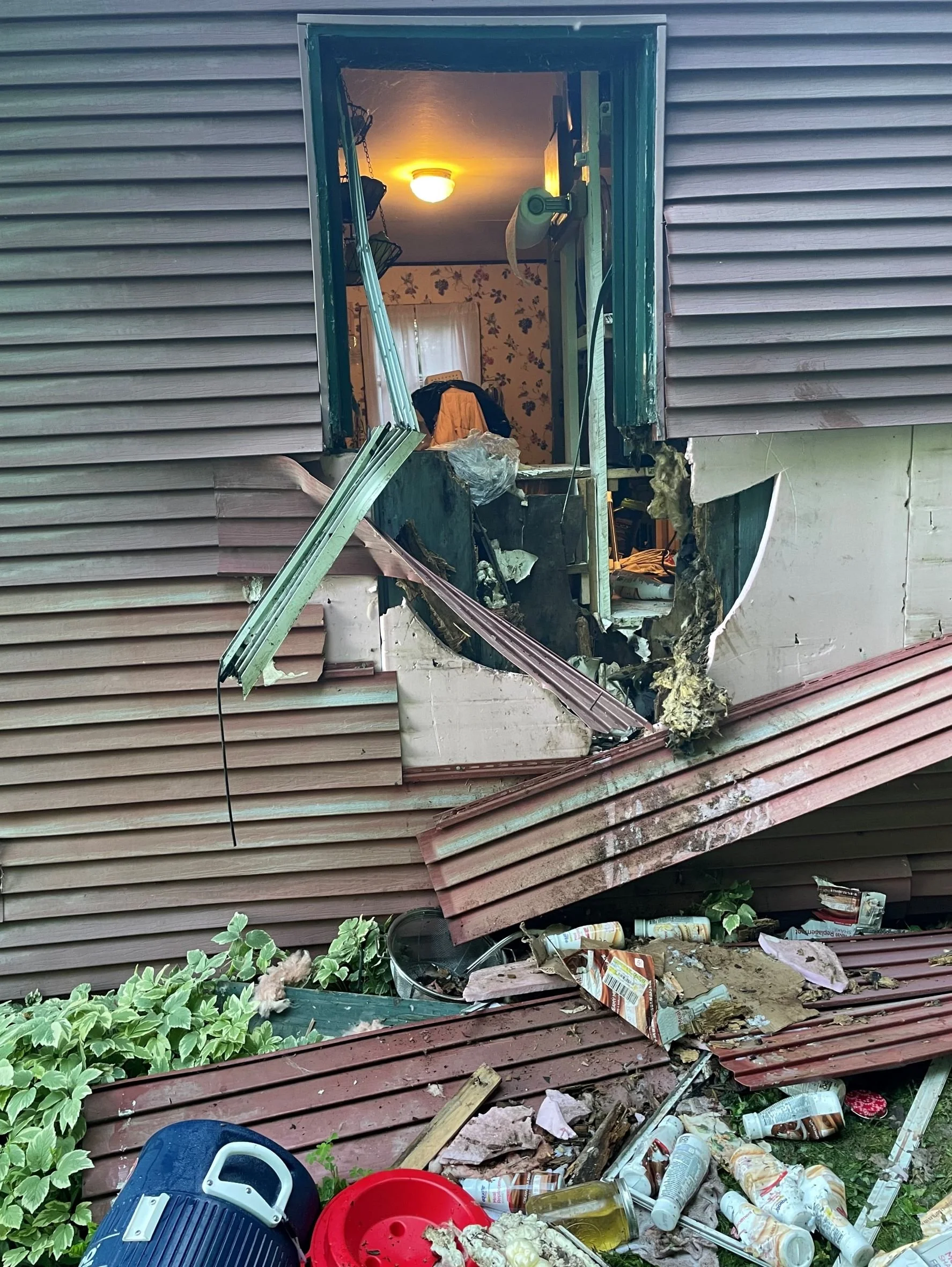As bears wake up, Vermonters can take steps to prevent conflicts
March 24, 2023 | By Vermont Fish & Wildlife | News release A security camera captured this image of a bear attempting to enter a Vermont homeowner’s outbuilding where garbage was stored. Photo courtesy Vt. Fish & Wildlife
The Vermont Fish & Wildlife Department has begun to receive reports of bears coming out of their dens as the weather warms.
Bear incidents have been on the rise over the past several years as 2022 saw high numbers of homes break-ins by bears, and two bear attacks. Officials believe this trend is a result of Vermont’s healthy black bear population learning to associate people and food over multiple generations.
“Preventing bears from having access to human-related foods is key to successful coexistence with these long-lived and intelligent animals,” said Jaclyn Comeau, Vermont Fish and Wildlife’s bear biologist.
The department asks Vermonters to take the following proactive steps for coexisting with bears:
Take down bird feeders between late March and December
Store garbage in bear-proof containers or structures - trash cans alone are not enough
Follow the steps on the Fish & Wildlife Department webpage for composting in bear country
Use electric fences to keep chickens and honeybees safe
Request a bear-proof dumpster from your waste hauler
Feed your pets indoors
Never feed bears, deliberately or accidentally
Building damage caused by a bear that had become comfortable around a Vermont residence and attempted to get into the kitchen. Vt. Fish & Wildlife photo
All of these steps will encourage bears to not spend time near humans where conflicts inevitably arise. “This will help teach bears that our yards and neighborhoods are not good places to search for food – but it will only work if everyone does their part,” Comeau said.
Vermont Fish & Wildlife experts also ask Vermonters to submit reports of bears engaging in potentially dangerous behavior like targeting bird feeders and garbage, feeding on crops or livestock, or investigating campgrounds. Submit reports on the department’s Living with Black Bears webpage. The data help biologists keep track of bear incidents and provide early interventions to head off conflicts.
“At the end of the day, purposely feeding a bear is not just bad for the bear,” said Comeau. “It is also dangerous for you, it causes problems for your neighbors, and it is illegal. If bears are finding food on your property, it is your responsibility to remove that attractant and report a problem before the situation escalates.”


